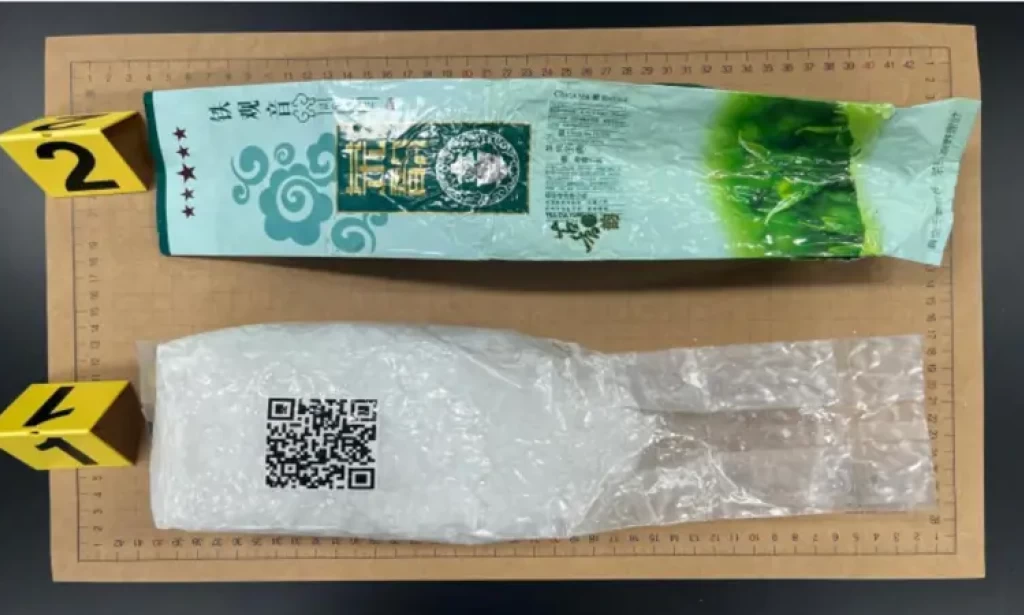Since September, residents of Jeju Island, South Korea, have been finding small packages disguised as Chinese tea bags on the coast. Upon closer inspection, these packages were found to actually contain ketamine (K powder).
Police stated that they have discovered approximately 28 kilograms of drugs wrapped in tin foil at at least eight different locations, with the Chinese characters "Tieguanyin" and "tea charm" printed on the outer packaging.
Ketamine can be used as an anesthetic in medical procedures, but it is illegal for recreational use in South Korea. Abuse of this drug can cause serious physical and psychological harm, including damage to heart and lung function.
The Jeju Coast Guard has established a special task force to investigate the possible routes by which these drugs entered South Korea by sea or land.
Authorities also warned residents not to touch or open any suspicious items found on the coast and urged the public to report any such items to the police immediately.
On October 15, a beach cleaner discovered 20 kilograms of these "tea bag drugs" on the coast of Seogwipo in southern Jeju Island, the largest such discovery in the past two months.
According to South Korea's JoongAng Ilbo, earlier this week, a team of over 800 soldiers, police officers, and civilian volunteers launched a thorough search along the coast of Jeju City in northern Jeju Island.
According to the report, investigators are currently focusing on whether the drugs drifted to Jeju Island via ocean currents.
The report quoted the head of the drug investigation team of the local Maritime Police Agency as saying that similar "tea bag drugs" had also been found in Pohang, another city in South Korea, and Tsushima Island in Japan.
Jeju residents are concerned about the presence of illegal drugs on the coast.
Kim, a resident of Jeju City who witnessed the large-scale search operation this week, told the JoongAng Ilbo, "I often bring my children to this beach."
"It's terrifying to see so many people looking for drugs. The thought of my child possibly coming into contact with that stuff sends chills down my spine."
Another resident, surnamed Xuan, hoped that the authorities could "stop more (drugs) from drifting in."
Yoon Heung-hee, a professor in the Department of Drug and Alcohol Addiction Research at Seoul National University, said that these ketamine packages may be linked to a larger criminal organization.
He pointed out that some criminal groups use the "sea drop" method to transport drugs, which involves throwing drug packages containing tracking devices into the sea and then retrieving them later.
Professor Yoon told the Hankyoreh that criminal organizations may be trying to use Jeju Island as a transit point for drug smuggling into South Korea, “by exploiting loopholes in airport and port inspections.”
Additional report by BBC Korean correspondent Suhnwook Lee



You must be logged in to post a comment.